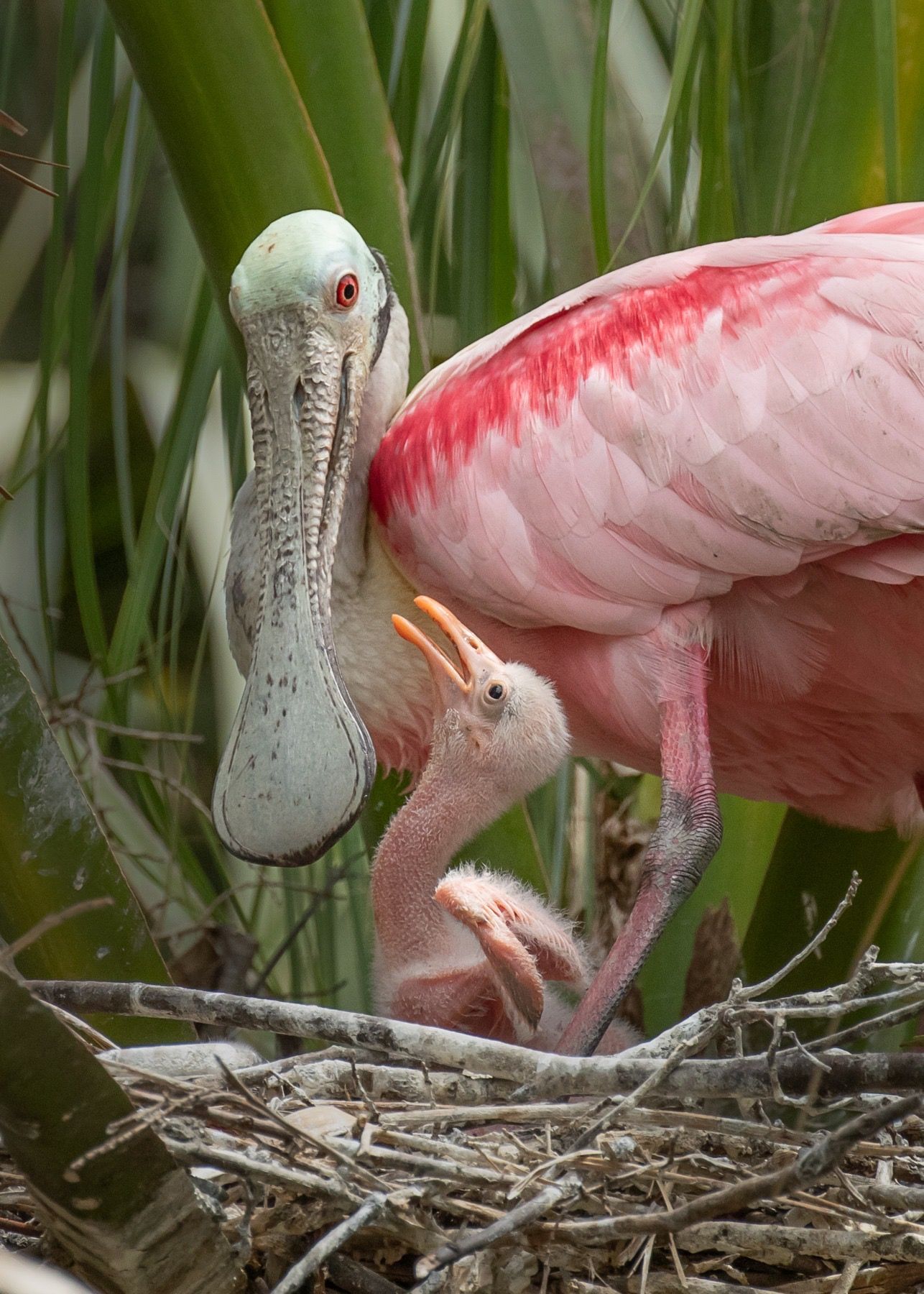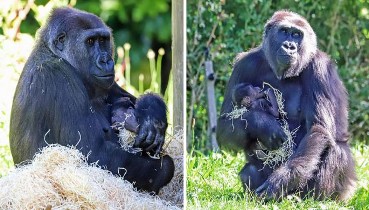
The roseate spoonbill (Platalea ajaja) is a gregarious wading bird of the ibis and spoonbill family, Threskiornithidae.
Roseate spoonbills are very social. They live in large colonies with other spoonbills, ibises, storks, herons, egrets and cormorants. Roseate spoonbills fly in flocks in long diagonal lines with their legs and neck stretched out.
Roseate SpoonbillThe roseate spoonbill population was once threatened by hunting. In the mid-to-late 1800s its feathers were used in ladies' hats and fans. The population was also threatened by loss of habitat due to drainage and pollution in its habitat. By the early 20th century, the population had shrunk to only a few dozen nesting pairs in the United States. Special protected areas were set aside for them and in the 1940s they were made a protected species. Over time the population recovered and today the roseate spoonbill is no longer a protected species.
Roseate SpoonbillThe roseate spoonbill population was once threatened by hunting. In the mid-to-late 1800s its feathers were used in ladies' hats and fans. The population was also threatened by loss of habitat due to drainage and pollution in its habitat. By the early 20th century, the population had shrunk to only a few dozen nesting pairs in the United States. Special protected areas were set aside for them and in the 1940s they were made a protected species. Over time the population recovered and today the roseate spoonbill is no longer a protected species.
Advertisements
03 February 2022
Advertisements



